Mozambique: Ex-president's son guilty in hidden debt scandal released on parole
Mozambique: Leader of armed groups a symbiosis of “brutality and justice-making” – Lusa
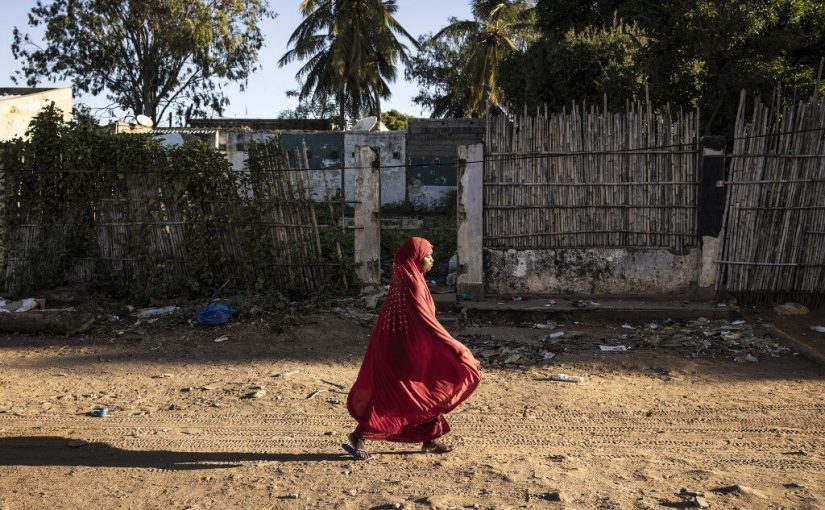
FILE - For illustration purposes only. [File photo: Lusa]
Mozambican researcher João Feijó describes Bonomade Machude Omar, leader of the armed groups operating in Cabo Delgado, as a symbiosis between “brutality and justice-making” indicative of poverty and social despair favouring the quest for “alleged messiahs”.
“What is said about him [Bonomade Machude Omar], based on several testimonies, is of someone sinister who is a mixture of brutality, and who arrogates to himself a sense of justice,” said João Feijó, who has written several works on violence in Cabo Delgado.
Read: Terrorism in Cabo Delgado: “The enemy has a face, is Mozambican and played football with us”
Another personality trait that emerges from the available testimonials is that of a character with charisma, followed by many people, either voluntarily or by coercion.
João Feijó sees Bonomade Machude Omar as a product of a gradual Islamic radicalisation through Quranic studies in madrassas, with a more extreme doctrine paralleling the experience of a social reality punctuated by social exclusion, poverty and oppression.
“There are several factors that produce this type of leader: radicalisation through studies in madrassas, revolt with the concrete experience of poverty and marginalisation and even opportunism, which takes advantage of the desperation of communities to obtain advantages, including material advantages,” Feijo highlights.
Feijó points out that the feeling of marginalisation and social oppression makes communities more prone to the search for supposed “messiahs”, and that this is not a phenomenon exclusive to Mozambique.
“I draw a parallel with Afonso Dhlakama [the deceased leader of the Mozambican National Resistance, the main opposition party]. He was the protagonist of a civil war which was lacerating for the country, but he drew crowds and was very popular. What explains this, if not the pursuit of a ‘messiah’ by a desperate population?” he asks.
Another phenomenon in Mozambique that shows the vulnerability of populations to populist promises of a better life is the success of new religious sects with a discourse of rupture with the narrative of traditional churches, Feijó claims.
For the Observatório do Meio Rural (OMR) researcher, the emergence of figures such as Bonomade Machude Omar makes legitimate the need for the conflict in Cabo Delgado to include solutions that solve the basic needs of the communities.
“I am not against defence and security solutions, but this approach must be accompanied by job creation for young people, provision of basic social services, respect for human rights and encouragement of democratic participation by communities in the country’s political and economic life,” he says.
Feijó also defends the creation of benefits for the communities from large natural resource projects in Cabo Delgado, such as natural gas.
Feijó is the author of several works on the conflict in Cabo Delgado, including “Characterisation and social organisation of ‘machababos’from the discourses of kidnapped women”, and regularly publishes analysis of this theatre of war in the OMR’s “Rural Highlight” [“Destaque Rural”] publication.
Read: Mozambique: Kidnapped women return, tell of insurgent organisation
Last week, the United States of America named Bonomade Machude Omar, aka Abu Sulayfa Muhammad and Ibn Omar, as head of the ISIS-Mozambique Military and External Affairs departments and senior commander and lead coordinator of all attacks conducted by the group in the north of the country.
In the statement issued by the office of the US Secretary of State, Antony Blinken, Omar is also designated as the lead facilitator and communications conduit for the group.
In addition to Bonomade Machude Omar, the US State Department last August 7 also named Sidan ag Hitta, Salem ould Breihmatt, Ali Mohamed Rage and Abdikadir Mohamed Abdikadir, whom it designates “Specially Designated Global Terrorists (SDGT)”.
Read: US State Department: Designations of ISIS-Mozambique, JNIM, and al-Shabaab Leaders – unabridged
“During the March 2021 attack on Palma, Omar led one group of fighters while Abu Yasir Hassan, the leader of ISIS-Mozambique, led another,” the US State Department says.
Omar “also led the attack on the Amarula Hotel in Palma” and “has been responsible for attacks in Cabo Delgado Province, Mozambique, and Mtwara Region, Tanzania,” Anthony Blinken’s office adds.
In an analysis he published in OMR, Feijó describes Bonomade Machude Omar, based on several journalistic texts, as the leader of the group widely known in the region, and with several names.
Omar was born in Palma district, in the village of Ncumbi, and lost his father at the age of five, Feijó relates.
The family travelled to Mocímboa da Praia, and the mother went to live with another man, locally known as Mze Tchidi. The stepfather introduced Omar to Islam, which he went on to study.
He finished Grade 10 at the Januário Pedro Secondary School in Mocímboa da Praia and, according to his teachers, was a calm young man, a good student and a good football player, the researcher adds.
After reaching the age of majority, he completed his military service in the navy in Pemba, after which he went to the African Muslim boarding school, where he finished Grade 12.
He became a charismatic figure among the young, known for his sense of justice and protection of the youngest.
One of his hobbies was playing football. Due to his height (between 1.80 and 1.90 metres) and the fact that he played midfield, he acquired the nickname “Patrick Vieira”.
Read: Mozambique: Chissano suggests dialogue with Cabo Delgado terrorists


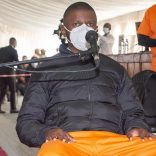


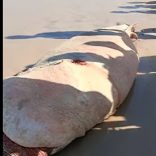
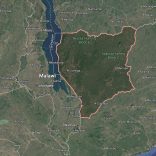
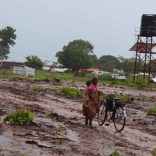




Leave a Reply
Be the First to Comment!
You must be logged in to post a comment.
You must be logged in to post a comment.